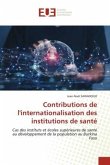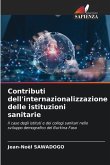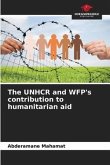The knowledge economy is becoming increasingly borderless: the number of internationally mobile students continues to rise, and could exceed 7.5 million by 2025. This internationalisation is becoming a key feature of higher education worldwide. In Burkina Faso, this internationalisation is underway, especially in higher health schools and institutes, but its contribution to the social and economic development of the population remains unexplored to date. The aim of the study of the socio-economic contribution of the internationalisation of higher health institutions in Burkina Faso is therefore to analyse the impact of internationalisation on the country's socio-economic development. The results of the study show that internationalisation can contribute to training qualified and competent human resources, promoting scientific research, improving the quality of teaching and diversifying the range of training on offer. The study also highlights the challenges faced by higher education health institutions in their internationalisation process.
Bitte wählen Sie Ihr Anliegen aus.
Rechnungen
Retourenschein anfordern
Bestellstatus
Storno








